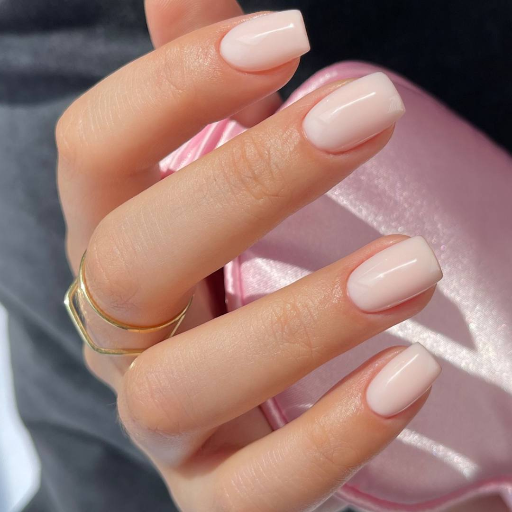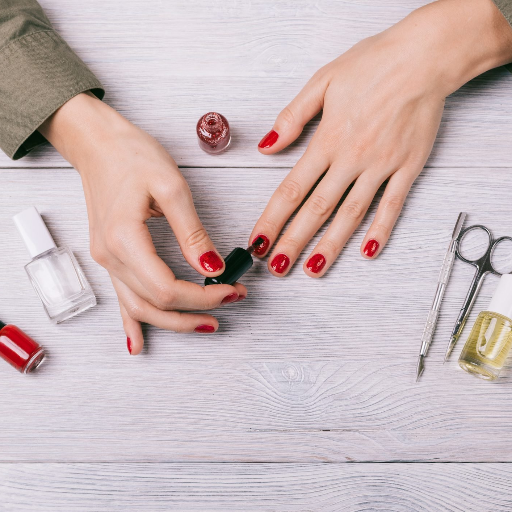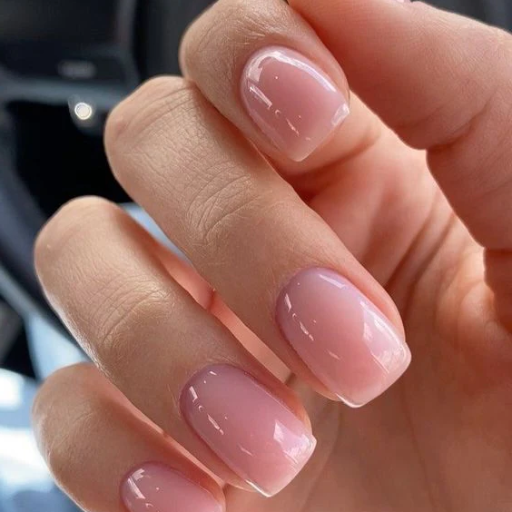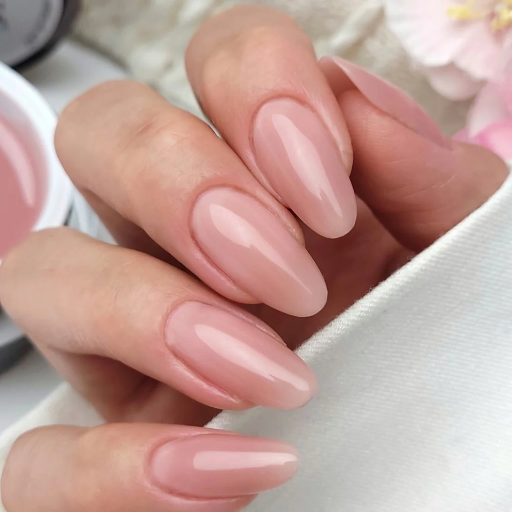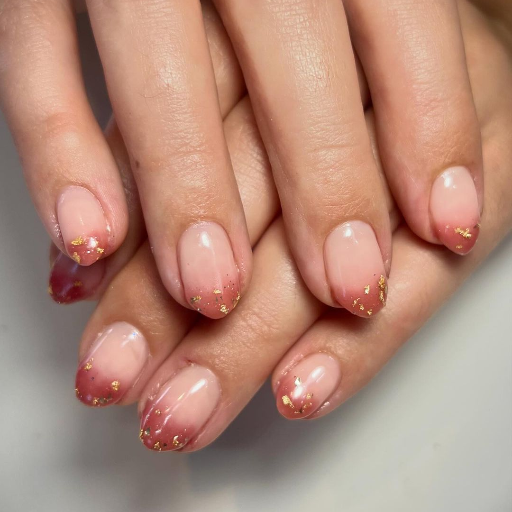To achieve beautiful and healthy skin it is necessary to follow one’s body care regime religiously and comprehensively. The present article can serve as a step-by-step framework by addressing proper cleansing, exfoliation, hydration, and environmental protection. Additionally, the need to use appropriate products and understand their ingredients that improve one’s skin is discussed. Whether you are new to skincare or want to improve your current regimen, you will find simple tips or details in this blog that will help you attain beautiful supple skin from head to toe.
What is a Body Skincare Routine and Why is it Important?

A body care routine is a routine that is well-organized and enables the user to maintain the health and appearance of skin on the body. For instance, it includes cleaning the skin, exfoliating, moisturizing, and protecting to get rid of impurities, increase hydration, and minimize damage caused by the environment. This routine is crucial because the skin is the largest organ of the human body and the first line of defense against aggressors that emanate from outside the body. Lack of proper care can result in skin inflammation, excess dryness, irritation, or accelerated aging; on the other hand, regular maintenance didn’t support the decrease of skin renewal, elasticity, and overall strength but increased it.
Understanding the Basics of a Body Care Routine
A body care routine as such entails three steps that would protect the skin from deterioration and also ensure that it is in good health and is well looked after. To begin with, cleansing is the step that helps take away dirt, sweat, excess oil, and any pollutants that might have stuck to the skin during the day. Dermatologists often recommend gentle ph balanced cleansers that help cleanse the skin without compromising its barrier.
The next important step is Exfoliation, which should be done either once a week or twice a week based on skin type and concerns to aid the removal of dead skin with an aim to increase cell turnover. Physical exfoliation uses fine granular scrubs while chemical exfoliation uses AHAs, both of which can enhance the effectiveness of the step.
Last but not least, hydration and protection are the subsequent steps that get the body ready to protect it from UV rays as well as environmental damage. Hyaluronic acid, glycerin, and ceramides are some ingredients that can be merged with hydrators such as lotions, body oils, and creams to help restore required moisture levels. Moreover, applying sunscreen that has a broad spectrum and SPF is crucial for the prevention of penetration of ultraviolet radiation which causes age spots and skin pigmentation. Adapting a regular body care regime that suits an individual’s requirements amplifies skin appearance as well as sustains health in the long run.
How Does a Skin Care Routine Affect Your Body Skin?
It has been established that a reasonable skin care regimen for the skin of the body can remarkably improve one’s skin condition by allowing for sufficient hydration, exfoliation, and protection of the skin. Washing the skin effectively removes contaminants and dead skin that would otherwise impede pore functions and slow cellular processes. Applying humectants such as hyaluronic acid helps support your skin barrier structure, and improves moisture retention and skin elasticity. Gentle exfoliants, whether chemical or physical, also help prevent the accumulation of dead skin by encouraging skin turnover which improves the overall smoothness and tone of the skin. Also, applying sunscreen every day protects the skin from damage caused by UV rays, hence, reducing the chance of accelerated skin aging and the development of skin tumors. In summary, such methodical skincare routines improve the structural integrity of the skin, promote the healing of damaged areas, and contribute to maintaining the normal replenishment processes of the skin for enhanced health in the long run.
Benefits of a Regular Body Skincare Routine
Implementing a uniform body skin care regimen is beneficial in several aspects as it is backed by scientific facts guaranteeing the health and wellness of the skin. To begin with, it prevents skin dehydration by maintaining ideal moisture levels which in effect enhances the smoothness and elasticity of the skin. Some procedures can be adopted like cleansing and exfoliation that do remove dead skin and sebum, thereby reducing body acne and even skin texture. Such dead skin regulates suppleness therefore to counter such, one should apply a moisturizer that smoothes the natural texture of the skin and prevents irritants as well. Daily wearing of sunscreen should be a strict rule as it has been proven to prevent further issues such as skin burns and pigmentations and more importantly chronic cellular damage relating to UV rays. Evaluation results show that constant practice of such routine leads to more cell regeneration, improving skin elasticity as well as reducing prominence scars and wrinkles giving one a more youthful look. In summary, a well-structured and consistent body care routine is an antidote to the adverse effects of environmental factors while ensuring that your skin remains youthful and radiant with no signs of aging.
How to Build an Effective Body Care Routine?

Skin comes in various types, and the most effective way to form a strong body care routine is by first understanding the type of your skin as well as its needs. Begin with starting with cleansing, then follow it up with exfoliation at least two to three times a week. This will help in removing dead skin cells and in improving your skin texture. Then daily moisturizing with an adequate product that is still suitable for your skin type would help in retaining and building your skin barrier. Even on a cloudy day applying sunscreen is a must as it prevents the skin from getting damaged by sun rays. If you have specific issues, try using body oils, firming creams, or even body anti-aging creams. Being regular with the routine is essential but so is switching and changing your routine according to seasonal and climatic changes as well as according to your skin condition.
Steps in a 5-Step Body Care Routine
Cleansing: When it comes to body cleansing, it is the first step of my body care kind of regime and therefore I always make sure to use a gentle pH-balanced body cleanser which allows me to get rid of dirt, oil, and impurities without compromising my skin’s natural barrier. Depending on the dryness or the oiliness of my skin, I also tend to use a suitable product that caters to the needs of my skin.
Exfoliation: In a week I exfoliate twice, using a physical scrub or chemical exfoliant. AHAs and BHAs play a critical role when it comes to exfoliation, they allow me to scrub away the dead skin and at the same time enhance the texture of my skin. Since scrubbing it too much can lead to irritation, I am careful to refrain from over-exfoliating.
Moisturizing: After fusing with warm water and pat drying my skin, the next step of my routine is applying either a body lotion or body cream which is specifically made to provide deep hydration. This is extremely crucial because the skin is still relatively moist, enabling me to emphasize ceramides, shea butter, or hyaluronic acid.
Targeted Care: Stretch marks and uneven tone have troubled people for ages and as a necessity, I incorporate some treatments such as retinol-based creams or C vitamins infused creams on a selective basis as these allow to heal most problematic areas over time.
Sun Protection: The last step of my routine which is done on a daily basis is applying sunscreen to every exposed area of my body. This not only protects my skin from UV damage but also saves it from signs of aging. In short, It is a lifesaver to me.
Choosing the Right Skin Care Products for Your Skin Type
Choosing the right skin care products involves knowing your skin type and its characteristics. The very first step in the selection of skin care products is identifying the relative skin type that one possesses whether oily, dry, combination, sensitive, or normal skin. For oily skin go for gel-based light moisturizers and salicylic acid-containing cleansers that help control the excess oil. Dry skin has a deficiency and to fill that gap use products rich in hyaluronic acid, ceramides, and glycerin. Combination skin needs a combination of some gentle cleansers with water-based moisturizers and treat the oily areas with specific products. For sensitive skin choose pH-neutral products so that it does not irritate the skin; ingredients such as aloe vera or chamomile should be preferred. Those having normal skin should follow a basic skin regime including cleansing, moisturizing, and sun protection to maintain balance.
Most importantly avoid using products that might aggravate your specific problems so before deciding check the ingredients and slowly incorporate new products into your regimen. Targeting specific concerns such as acne, hyperpigmentation, or aging and enhancing one’s routine with focused treatments could improve overall skin health.
Essential Body Care Tips and Tricks
Proper care of our bodies is important for the health and hygiene of our skin. So, Firstly, always take a shower with a body wash that is mild and has a balanced pH to prevent stripping the skin of essential oils. Additionally, exfoliate the skin twice weekly with a physical scrub or a chemical scrub that consists of alpha-hydroxy acids (AHAs) or beta-hydroxy acids (BHAs) to remove the presence of dead elements on the surface as well as accelerate cellular turnover. Secondly, it is preferable to apply a hydrating moisturizer on wet skin to assist in retaining moisture. Try to find ingredients that work to improve the function of the skin barrier like hyaluronic acid, shea butter, or ceramides.
Furthermore, sun exposure should always be protected from, hence using good quality sunscreen all over the body is crucial, even at non-summer months to protect from wrinkles as well as UV damage. To prevent dryness in elbows, knees, and heels, ultra-rich creams and balms ought to be applied. Likewise, keeping the body hydrated regularly while maintaining a healthy diet and sleeping is equally as important since it reflects in the skin. Always perform a patch test on the skin for new products and modify/shift routines according to the skin’s requirements or what season it is.
What Role Does Body Scrub Play in Your Routine?

Body scrubbing is an integral part of skin care because it removes dead skin cells, clears clogged pores, and stimulates cell turnover. As a result, the skin‘s structure improves and becomes more even and brighter. In addition, scrubbing more often than once a week may help skin products penetrate deeper and work even better. Body scrubs can be applied one to three times a week according to your skin type and needs, trying not to over-scrub the skin to avoid irritation or sensitivity. For the best results, use a scrub with the right granule size and composition for your skin condition.
Why You Should Use a Body Scrub Regularly
Using a body scrub offers numerous benefits to your skin’s overall health and appearance. It efficiently removes dead skin cells through physical exfoliation, which unclogs pores and reduces the likelihood of ingrown hairs. By enhancing skin cell turnover, body scrubs promote a smoother, even-toned texture. Additionally, regular exfoliation improves circulation and stimulates lymphatic drainage, which can contribute to firmer, healthier-looking skin. Body scrubs also prepare your skin to better absorb moisturizers, serums, and other skincare products, maximizing their effectiveness. Incorporating a body scrub into your routine enhances not just your skin’s aesthetic but also its functional ability to retain moisture and elasticity. For optimal results, it’s essential to select a scrub formulated to suit your skin type and use it at an appropriate frequency to avoid irritation.
How to Choose the Right Body Scrub for Your Skin Type
While selecting a body scrub you must analyze your skin type and its requirements to not have any negative issues and get maximum benefits. For sensitive skin, go with scrubs that have gentle and fine particles, and metallic exfoliants that contain crushed shells or high-concentration acid be avoided. Some ingredients such as Oatmeal, Aloe Vera, or any other soothing additives should be added. Dry skin types should use moisturizing scrubs that are rich in Hydration like Shea butter, coconut oil, or honey, and combined with gentle exfoliants like sugar. Dry skin types should use scrubs that are combined with gentle exfoliants like sugar. For oily skin or acne-prone skin, scrubs that contain salicylic acid or activated charcoal are what you need as they clear out excess sebum production and unclog pores. Being a scrub and a rough exfoliant, its granules should not be too harsh.
No matter the skin type being used, over-exfoliating should be avoided as this may damage the skin or cause unwanted irritation. Generally for most skin types, using a body scrub two times per week is more than enough. Also always check the label on the product as it contains specific information regarding skin types along with the list of ingredients present to check for any allergens or irritants.
Benefits of Exfoliating Dead Skin Cells
Exfoliating the skin by getting rid of the excess dead skin cells has in many ways advantages and aids in maintaining the skin’s health and improving its overall feel. Comprising of the outer layer of the shed and clinically termed as ‘dead skin’, the process of exfoliation helps in achieving an increased cell turnover leading to brighter and even-toned skin. Furthermore, this process gets rid of clogged pores which facilitate the alleviation of blackheads, whiteheads, and acne. Exfoliating regularly also helps increase the effect of other skin care products by making serums and lotions sink deeper into the skin cells. When it comes to the body, this process can allow for some rough areas to be smoothed out such as the knees and elbows. Additionally, the texture of the skin improves over time, and so too does the ability to minimize the appearance of fine lines and wrinkles, providing immediate and long-term advantages when performed properly.
How to Address Different Skin Types and Concerns in Body Care?

It is essential to customize body care regimens to various skin types when considering various skin types. If the skin is considered dry, it should be treated with rich emollients containing shea butter or ceramides to aid in moisture retention and enhancement of the lipid barrier. Gentle and non-abrasive manners should be used during exfoliation as much as possible to prevent any unfortunate irritations. For oily skin, the use of light moisturizers that are non-comedogenic together with salicylic acid in scrubs is recommended to minimize extra oil as well as eliminate pore clogging. Sensitive skin requires gentle hypoallergenic lotion that doesn’t have strong scents and does not require harsh chemicals or aggressive scrubs. For combination skin, the use of hydration gel creams or oil control products is recommended depending on the drier areas affected. Fine-tuning uneven skin tones or keratosis pilaris may require the addition of certain treatments such as glycolic acid, retinol, or urea which refine the skin texture as well as improve the distribution of such areas on the skin.
Understanding Sensitive Skin and Its Needs
Dealing with sensitive skin often requires a specific regimen aimed at avoiding Dermal irritations whilst also preventing the skin barrier from breaking. Of note, consumers with sensitive skin should first look out for organic, non-fragranced skin products that are specifically designed for sensitive skin. Alcohol, sulfates, and other strong physical or chemical vehicles as well as strong exfoliants should also be avoided. It is necessary to combine hydrating and calming compounds such as aloe vera, chamomile, and hyaluronic acid to help neutralize redness and restore moisture. Certainly, the patch testing of products that have reacted adversely to the user increases the chances of a safe application. Moreover, having a regime with little alterations is beneficial in preventing outbreaks. To bathe, use slightly warm water and non-abrasive soaps while a broad-spectrum sunscreen applied every day protects the skin from UV rays.
Body Care Tips for Dry Skin
My main objective is to concentrate on protection through suitable hydration for my dry skin. After a shower, I use a soap-free cleansing lotion, nonirritant, and fragrance-free, to avoid removing any natural oils from the skin, followed up by applying an emollient thick cream. I take lukewarm showers for the sole reason so that dryness worsens. During the day, I shield my skin by using a moisturizer which ensures I am protected against the sun’s rays. I drink ample amounts of water and am sure to turn on the humidifier during dry or cold weather to replace the moisture lost.
Managing Skin Concerns with the Right Products
Skin concerns can be confusing to treat because you need to know us well; our skin type and choose the right line of products that suit the skin issues. Acne-prone skin can use non-comedogenic acne cleansers that contain salicylic acid or benzoyl peroxide, as they aid in the reduction of pore blockage as well as acne breakouts. Hypo-allergic products without artificial scents or dyes, but with soothing ingredients like aloe vera or colloidal oatmeal work nicely on sensitive skin. For treating hyper-pigmentation, niacinamide serums or vitamin C are also very promising as they help even out the skin tone and make the skin brighter in the process.
When warding off aging issues like fine lines, wrinkles, and others, retinol or peptides are active ingredients that have great proven results in collagen production and skin turnover. For grave skin issues, skin moisture containing ceramides prescribed by a dermatologist or even dermatological options can help make a great change. This is however stated due to proven statistics that have shown the use of sunscreen daily has or assists most issues regardless of the specific issues.
How to Maintain a Healthy Body Skin Care Routine?

- Cleanse Gently: Use a mild, pH-balanced body cleanser to remove dirt and excess oil without stripping the skin’s natural moisture barrier. Avoid harsh soaps that can cause irritation or dryness.
- Exfoliate Regularly: Incorporate gentle exfoliation 1-2 times per week using physical or chemical exfoliants like lactic acid or glycolic acid to remove dead skin cells and promote smooth texture.
- Hydrate Daily: Apply a nourishing moisturizer containing humectants (e.g., glycerin, hyaluronic acid) and emollients (e.g., shea butter, ceramides) right after bathing to lock in moisture and maintain skin elasticity.
- Protect from UV Damage: Use a broad-spectrum sunscreen with at least SPF 30 on exposed areas of the body, even on cloudy days, to prevent UV-induced aging and skin damage.
- Target Specific Concerns: Address issues like dryness, itching, or discoloration with targeted treatments such as body serums or lotions containing ingredients like urea, niacinamide, or antioxidants.
- Stay Consistent: Establish a daily routine that includes cleansing, moisturizing, and sun protection to ensure long-term skin health and resilience. Adapt the routine to seasonal changes or specific skin needs as required.
Importance of Consistency in Your Body Care Routine
Having a proper and effective concept and care routine for your skin will ultimately restore balance since it is central to achieving and maintaining healthy skin. Applying moisturizers regularly should help keep the levels up and balanced over time whilst promoting elasticity and preventing dryness. Routine application of sunscreens effectively protects the skin from conditions associated with exposure to ultraviolet radiation over time which may include aging, forms of discoloration, and skin cancer. Focused but systemic intervention to some of the issues by the use of urea for rough keratinized skin or niacinamide for discoloration on a gradual basis seems to work better as the skin has time to get used to the treatment and improve. Also, the less the variation in the routine, the less the chances of damaging the epidermal barrier, hence ensuring that the skin is always able to perform its functions effectively. Ultimately, having a specific approach and care regimen should be beneficial in the long term as it allows you to adjust to different environmental factors or meet particular needs such that regardless of the season, your skin remains healthy and well-nourished.
How to Keep Your Skin Hydrated and Healthy
For you to always have hydrated and healthy skin, you must implement key measures that will come from the expert dermatological advice given to you. For starters, begin by drinking an adequate amount of water daily because internal hydration translates to the skin’s moisture. Use a non-sulfate-based mild cleanser that would help avoid skin barrier disruption and be wise to apply a good moisturizer before and after washing your face. Look for skincare products that are treated with hyaluronic acid, glycerin, ceramides, and other such derivatives.
Apply sunscreen daily especially one which has a SPF of 30 or more, this will protect against UV penetration whilst also preventing the skin barrier from moisture loss. When taking a shower avoid extreme temperatures, an ideal substitute for this would be warm water as it does not hinder the skin’s oil. To further moisturize the skin, especially during winter, place a humidifier in your room. Continually doing this will guarantee supple-looking skin which is not only healthy in the long run, but will also feel smooth.
Signs You Need to Change Your Body Routine
There are several indicators that I need to alter my body routine such as continual dryness or an itch that persists despite the use of a moisturizer. It becomes clear that I am missing the mark when the skin on my legs and arms is often dry or even flaky since this suggests that the moisturizers I am using are not sufficient. It is also possible to receive this irritation or redness which potentially indicates that I may be overusing a cleanser or exfoliants. When my complexion is not as bright and the skin is not as supple, that would indicate to me that I would need to reevaluate my beauty regime as I seem not to have used hyaluronic acid, ceramides, or glycerin which are essential ingredients. By noticing these changes in my skin, I will be able to know what needs to be changed so that in the long run, I can ensure that my skin stays healthy.
References
Frequently Asked Questions (FAQ)
Q: What is the best care routine for smooth and glowing skin?
A: A comprehensive care routine for smooth and glowing skin includes using a gentle body wash, exfoliating regularly, and applying a hydrating body lotion or body cream. Incorporating a body serum into your routine can help improve skin texture and address specific skin concerns.
Q: How can I keep my skin healthy and hydrated?
A: To keep your skin healthy and hydrated, apply a body lotion or body oil immediately after showering to help lock in moisture. Using products that are gentle on the skin and suitable for your specific skin type can prevent dryness and irritation.
Q: What products are recommended for normal skin?
A: For normal skin, it’s important to maintain a balanced routine with products that support the skin barrier. A gentle body wash, lightweight body lotion, and occasional use of body butter can help keep skin soft and smooth.
Q: How do I address uneven skin tone?
A: To address uneven skin tone, use products with ingredients that brighten and even out the skin, such as vitamin C or niacinamide. Consistent use of a body serum and SPF can further protect skin and improve skin tone over time.
Q: Can body products irritate your skin?
A: Yes, some body products can irritate your skin, especially if they contain harsh chemicals or fragrances. Opt for products that are gentle on the skin and free from irritants, particularly if you have sensitive or specific skin concerns.
Q: How often should I exfoliate my full body?
A: Exfoliating your full body 1-2 times a week is generally sufficient. This helps remove dead skin cells without causing the skin to lose essential moisture or become irritated.
Q: What is the role of body butter in a skincare routine?
A: Body butter is thicker and more nourishing than regular body lotion, making it ideal for dry or in need of extra care areas. It helps protect the skin and improve skin texture, especially in colder months.
Q: Why is a care routine for your face different from your body?
A: The skin on your face is generally more delicate and sensitive than your body’s. Facial routines often require different products to address various skin needs and protect the skin barrier without irritating it.
Q: What precautions should I take to prevent skin cancer?
A: To help prevent skin cancer, apply sunscreen daily, even on cloudy days, and avoid prolonged sun exposure. Regularly check your skin for any changes and consult with a dermatologist for proper care and guidance.


